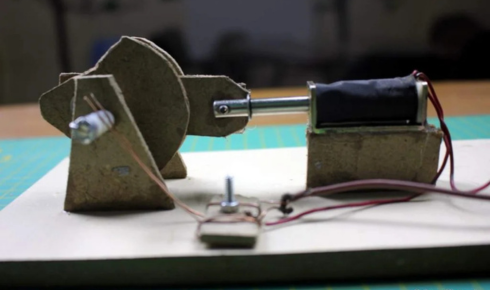
Science and technology education thrives on hands-on learning, and one of the most effective ways to understand scientific principles is by working on a physics project. Physics projects not only help students grasp complex concepts like motion, energy, and electricity but also develop critical thinking, problem-solving, and analytical skills. When paired with an easy science project, learners can explore scientific ideas in a fun, engaging, and accessible manner, making learning both exciting and effective.
Selecting the right physics project is the first step toward a successful experiment. Beginners often prefer projects that are simple yet visually appealing, such as demonstrating Newton’s laws of motion using toy cars, pendulums, or ramps. More advanced students might explore electromagnetism, solar energy, or principles of aerodynamics through small-scale models. The key is to choose a project that balances feasibility with learning value, allowing students to understand the underlying physics while keeping the setup manageable.
Easy science projects are particularly beneficial for younger students or beginners in the field. They involve simple materials and clear instructions, making it easier to replicate experiments and observe outcomes. For example, a classic experiment demonstrating air pressure can be performed using a glass, water, and cardboard. Another simple project involves creating a homemade electric motor using a battery, wire, and magnet, giving students firsthand experience with electromagnetic principles. These projects are not only educational but also spark curiosity and enthusiasm for further exploration in science.
A well-executed physics project requires careful planning and proper documentation. Students should start by defining the objective, listing required materials, and outlining the procedure. Recording observations, measurements, and results in a structured manner ensures that the experiment can be analyzed scientifically. Visual aids such as graphs, charts, or diagrams can make the presentation more compelling, especially in science fairs or classroom demonstrations. Clear documentation also helps in understanding cause-and-effect relationships and reinforces the scientific method.
Integrating innovative concepts into easy science project can make them more engaging and memorable. For instance, students can explore renewable energy by building a small solar-powered car or investigate mechanics by constructing a simple catapult. Combining theoretical knowledge with practical implementation allows learners to connect classroom lessons with real-world applications. These projects also encourage creativity, as students often design their own models or experiment with variations to test different outcomes.
Safety is an essential aspect of any physics project or science experiment. Even simple projects can involve materials or tools that require careful handling. Students should follow safety guidelines, wear protective gear if necessary, and conduct experiments in a controlled environment. Teachers and mentors play a crucial role in guiding students on safe practices and ensuring that the learning experience is both educational and secure.
Participating in physics projects and easy science projects also fosters valuable life skills beyond scientific knowledge. Students learn time management, teamwork, and communication skills while explaining their project to peers, teachers, or judges. The confidence gained from successfully completing a project motivates learners to explore more complex topics and fuels a lifelong interest in science and innovation.
In conclusion, working on a physics project alongside an easy science project is an excellent way to make science accessible, engaging, and educational. These projects provide hands-on experience, reinforce theoretical knowledge, and cultivate problem-solving and critical-thinking skills. Whether it’s for a classroom assignment, science fair, or personal curiosity, investing time in thoughtful project work ensures a rewarding learning experience that inspires creativity and a deeper understanding of the fascinating world of physics.


